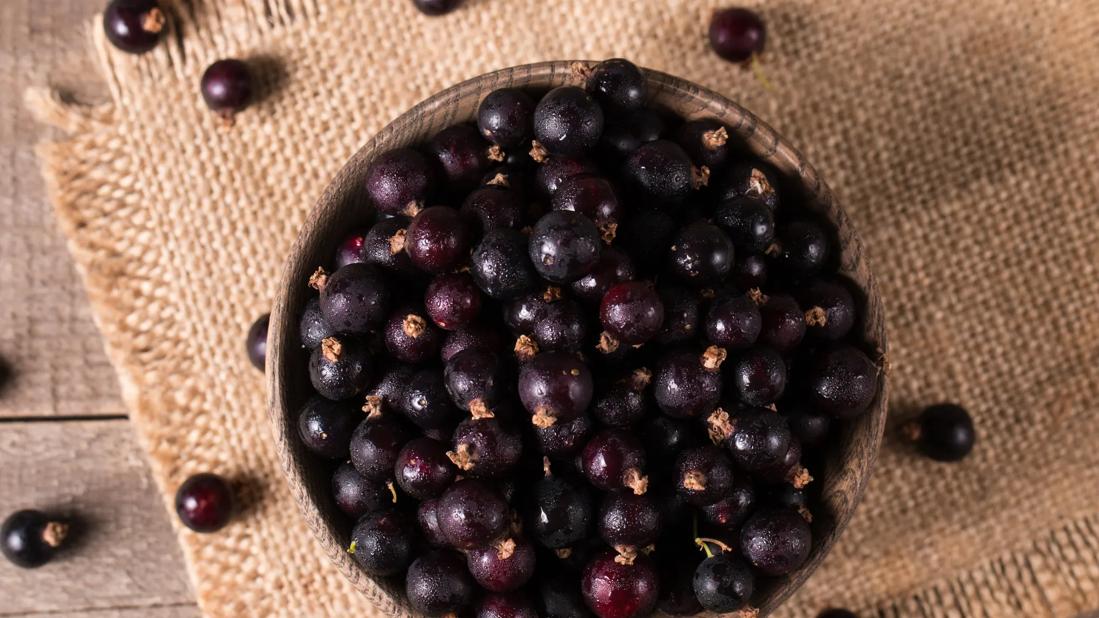High in antioxidants, this superfood offers many health benefits, including improving digestion and lowering cholesterol

Image content: This image is available to view online.
View image online (https://assets.clevelandclinic.org/transform/379d3123-324b-4fd6-ae95-18cdfd6a4b75/acai-berries-2149140548)
Bowl of fresh acai berries, with some scattered on burlap placemat
You might not be sure how to pronounce acai (it’s “ah-sah-EE”), but you’ve probably heard about these purple berries. They’re so rich in nutrients that some people call them “purple gold.” Acai benefits include preventing chronic illness, boosting brain health, aiding digestion and lowering cholesterol.
Advertisement
Cleveland Clinic is a non-profit academic medical center. Advertising on our site helps support our mission. We do not endorse non-Cleveland Clinic products or services. Policy
Acai berries are small, round, dark purple fruits that grow on acai palm trees in Central America and South America. They’ve been used in traditional medicine. And their popularity has grown as people have realized their superfood status.
“Acai berries are packed with nutrients that provide countless health benefits,” says registered dietitian Julia Zumpano, RD, LD.
Despite their appearance and name, acai berries are actually a stone fruit just like cherries and peaches. Their large pit or seed makes up as much as 80% of the berry. Acai berries look similar to blueberries. But some say they taste like a combination of berry, dark chocolate and red wine.
A high concentration of antioxidants gives acai berries their superfood powers. “Antioxidants protect our cells from free radicals, which can cause cell damage that contributes to various chronic diseases,” explains Zumpano.
A half-cup (or 100 grams) of frozen acai berries is cholesterol-free and has approximately:
The health benefits of acai berries include:
A natural plant pigment called anthocyanins gives acai berries their dark purple color. These flavonoids are part of a group of antioxidants known as polyphenols. These names might sound confusing, but they’re all substances made by plants (phytonutrients) that protect your body from chronic diseases.
Advertisement
A review of studies suggests that phytonutrients may lower your risk of:
Anthocyanins and other antioxidants in acai berries offer heart-protective benefits.
Acai also contains phytosterols, which are plant compounds that block the absorption of cholesterol and aid in the body’s reduction of how much cholesterol enters the bloodstream. Keeping cholesterol levels in a healthy range lowers your risk of:
Acai is a good food for better memory and brain health. Antioxidants in acai help protect brain cells from oxidative stress that can lead to memory decline.
As we age, autophagy — the process of the brain getting rid of damaged cells to make room for healthy ones — slows down.
A lab study found that acai supplements slowed the progression of Parkinson’s disease by easing inflammation and reducing the loss of dopamine. Dopamine helps send messages between your brain and the rest of your body. Zumpano notes that more human research is needed.
A half-cup of frozen acai provides up to 14% of your recommended dietary fiber. “Fiber is important for gut health,” says Zumpano.
High-fiber foods also:
Acai berries are good for you. But Zumpano shares a few things to be aware of:
Check with a healthcare provider before taking acai supplements. “Some supplements can interact with medications or may not be safe if you’re pregnant or have a chronic condition,” she warns.
You should also say no to an acai berry cleanse. This potentially dangerous detox trend involves taking acai supplements for several weeks to flush toxins from your body. “There’s no evidence cleanses work, and they may be harmful,” Zumpano emphasizes.
Acai berries come with plenty of health benefits.
Unfortunately, freshly picked acai berries spoil fast — within a day after harvesting. So, it’s not possible to bring fresh acai berries into the United States before they go bad. Instead, you can buy:
Advertisement
“You can reap the benefits from all forms of acai berries, just be sure there are no added sugars, sweeteners or fillers,” concludes Zumpano.
Advertisement

Sign up for our Health Essentials emails for expert guidance on nutrition, fitness, sleep, skin care and more.
Learn more about our editorial process.
Advertisement
Pick bell peppers to help fight cancer, memory decline and joint pain
The tropical fruit is a good source of antioxidants and vitamin C
High amounts of cholesterol and saturated fat in red meat may be linked to heart disease
The leaves and pods from this tree are rich in essential nutrients
This starchy root vegetable is a staple in many global cuisines — but it has to be prepared correctly, or it can cause serious concerns
These delicate green sprouts can give you an extra dose of vitamin K and other nutrients — but they’re not safe for everyone
Edamame, lentils and chicken breast are good sources of protein
Eating this root vegetable can help support your eye, heart and brain health
Prioritize your health by managing stress, strengthening your social connections and getting quality sleep
Bolsters, blankets, pillows and blocks can offer extra support, stability and comfort
Allergies, postnasal drip, asthma or reflux could be to blame for a cough that won’t quit